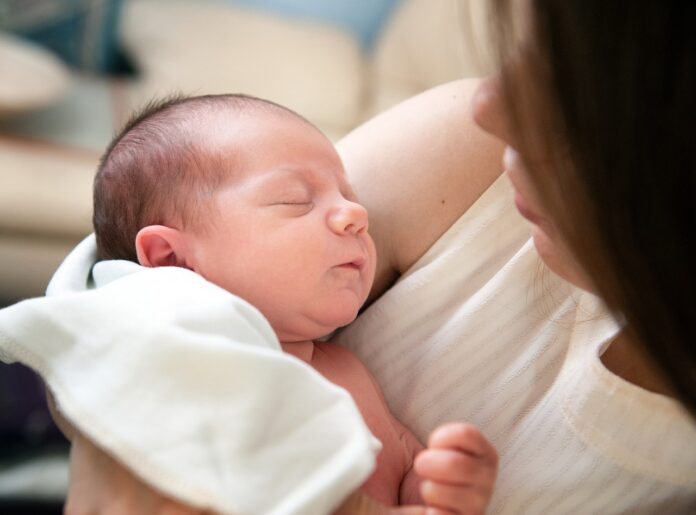Over a quarter of mothers found NHS maternity care ‘substandard’
May 2024 – In a survey from Slater and Gordon Lawyers, over 2,000 people were interviewed. The results painted a distressing image of the UK’s maternity system in the NHS. Over a quarter (25.71%) of mothers have said that their NHS maternity care was ‘substandard’ during their pregnancies, while 28.28% said they felt like ‘just a number’ during that time. Expectant mothers can often feel extremely cautious and vulnerable during both pregnancy and childbirth. It’s during these times that trust is placed in the medical professionals caring for them.
Kim Burns, Litigation Midwife at Slater and Gordon, has years of experience in the maternity sector. She is a and member of the Nursing and Midwifery Council, registered midwife, health visitor and community nurse prescriber, as well as being a member of the Royal College of Midwives and Institute of Health Visitors.
She thinks the ‘substandard’ rating found in the survey boils down to the staff being unsupported themselves due to staffing issues: “Midwives love giving great care and continuity. They are often held back in this quest due to pulls on their time from the fact the profession is losing staff, through both retirement and early career leavers due to stress.”
Of the surveyed people, it also showed that over a quarter of them (25.1%) found they didn’t feel confident in their healthcare providers during their births. More shockingly, over one fifth (21% overall) of mums felt they ‘did not feel supported’ or ‘had a low level of support’ during their pregnancy.
Burns continues, “If women are concerned by their care, the first port of call should always be the midwives themselves. Often the midwife will be able to support. If the issue runs deeper, clients can reach out to their local maternity lead, National Maternity Voices and The Patient Advice and Liaison Services.”
Burns expressed that maternity care is a trusting partnership between mother and midwife and when this relationship breaks down or feels unsupportive, resolutions should always be sought.
Laura Preston, Principal Lawyer, Medical Negligence at Slater and Gordon, said, “With data such as this, and the CQC report appearing, it’s hard not to question the safety of giving birth in the UK as we know that the safety and quality of maternity services may vary depending on the location and we also know what the harrowing affects can be with negligent maternity care.”
In February 2024, The Care Quality Commission (CQC) released its latest national maternity study. The survey was sent out to women aged 16 and over who gave birth in February 2023 at one of 121 NHS hospital trusts in England and a total of 25,515 people responded to share their views. The Care Quality Commission (CQC) is the independent regulator of health and social care in England.
The CQC survey has shown that many respondents were more positive about their interactions with staff, with 81% of people saying they were ‘always’ given enough time to ask questions or discuss their pregnancy at antenatal check-ups – this is up from 77% in the 2022 report. Survey results also show a five-year downward trend for respondents saying they were ‘always’ given the information and explanations they needed whilst in hospital after the birth.
Kate Terroni, the CQC’s Deputy Chief Executive, said in the statement, “It’s very clear that far too many women and people using maternity services feel their care could have been better. Positive feedback about the availability of staff and being able to get help or speak to a midwife while in hospital has declined over time. This echoes what we’re hearing directly from front line staff – many of whom have shared their own concerns about the impact of staff shortages on their ability to provide care.”
For some women and others who used maternity services, the care they received fell short of expectations and the long-term trend shows that satisfaction levels have been falling over time on a year-on-year comparison, according to the CQC. For example, a quarter of people (25%) of people surveyed said they were left alone at some point during, or shortly after, the birth of their baby at a time when it worried them. The CQC said this is a higher proportion than those who said this in 2018 (23%) and 2019 (22%).
For mothers, the impact of maternity negligence can be devastating in a time when they are especially unreadable both physically and mentally, and any negligence during this crucial period can have long-lasting consequences.
Emma Doughty, Head of Clinical Negligence at Slater and Gordon adds, “Inadequate prenatal care, failure to monitor and address complications and surgical errors are among some of the maternity medical negligence cases we see regularly.
“These, even minor, lapses in care can snowball and result in severe physical trauma such as excessive bleeding, infections and in severe cases things organ damage or maternal mortality. The mental and emotional toll is fundamental to being considered too. Some mothers feel betrayal, loss and trauma when preventable mistakes are made.”
Stressful birthing experiences brough on by poor maternity care can have a serious influence on postpartum mental health. Disorders such as post-traumatic stress disorder, or PTSD, depression and anxiety can affect many mothers.

| [donate]
| Help keep news FREE for our readersSupporting your local community newspaper/online news outlet is crucial now more than ever. If you believe in independent journalism,then consider making a valuable contribution by making a one-time or monthly donation. We operate in rural areas where providing unbiased news can be challenging. |



















